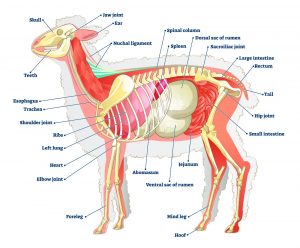Pre-clinical, in-vivo studies are performed to evaluate newly developed pharmaceuticals and medical devices, in terms of safety, efficacy, toxicity, functionality and so on, prior to application in clinical use. Ethical conduct in pre-clinical, in-vivo studies is intended to ensure that animals will not be unduly harmed and to ensure that the Best Clinical Practices (BCP) are employed when engaging in animal experimentation.
The concept of ethics in animal experimentation is not new. The book, The Principles of Humane Experimental Technique1, by Russell and Burch, first published in 1959, had an unprecedented impact on what has become the norm for today’s governmentally overseen laws and guidelines for the treatment and use of animals in pre-clinical studies. It was their book that first raised the 3R’s concept (replacement, reduction, and refinement), meant to define methods for minimizing not only the pain, but the distress caused to animals used for research.
An additional aspect of the methods described by Russell and Burch is the concept of humanity and inhumanity. The goal of adaptation of these methods is to set parameters in which to lessen inhumanity and distress of the animals. The concept of wellbeing has also been introduced. Accordingly, when inhumanity and distress of animals are removed, the animals’ wellbeing has then been taken adequately into account.2
Ethics in Israel – the National Council for Animal Experimentation
In Israel, supervision of animal experiments is the responsibility of the National Council for Animal Experimentation – a governmental body working under the supervision of the Ministry of Health. The Council supervises institutional review boards which exist at every organization licensed to perform animal experimentation, and additionally employs a national ethics committee which reviews applications for studies. The committee is comprised of volunteer representatives from various sectors, including science, medicine (both veterinary and human), and animal welfare organizations.
The committee supervises animal experimentation by virtue of specific permits, granted to institutions and is bound by the Israeli Animal Welfare Act (1994), which states that:
“Experiments must aim to minimize pain and distress; should only be conducted when absolutely necessary; must be designed to use the smallest number of animals possible.”
The Act also emphasizes the use of alternatives to animal testing whenever feasible.
The institutional review board is composed of representatives within the organization, including the institutional veterinarian – the leading authority on animal welfare within the organization. The review board is responsible for ensuring animal welfare across all studies conducted at the organization, and to act as the point of contact for any activities dictated by the council, primarily routine audits.
Ethics at Lahav C.R.O. – the Research Institute and the Team
Lahav C.R.O’s work strictly follows the best practice as laid out by Good Laboratory Practices (GLP), ISO9001 (2015), and the Israeli Ministry of Health. Lahav C.R.O. is also a member of the Federation of European Laboratory Animal Science Associations (FELASA), which represents common interests in the furtherance of all aspects of laboratory animal science (LAS) in Europe and beyond, making the 3R’s (replacement, reduction, and refinement) central in laboratory animal science.
Lahav C.R.O.’s onsite team includes 5 veterinarians with extensive experience in surgical research. Among these, one of the veterinarians is Lahav C.R.O.’s institutional veterinarian. The team includes experts with years of experience in animal research and long term treatment of animal welfare. Their expertise allows Lahav C.R.O. to guide its clients in planning study protocols prior to submission to the national ethics committee, as well as in providing valuable input (such as test methods; blood analysis approaches; anesthetic procedures etc.).
Applications for studies submitted by Lahav C.R.O. to the National Committee Guidance are approved at high rates. Approximately 80% of applications receive approval with no additional comments and no requests for modifications, while the rest generally require basic clarifications to follow-up questions made by committee members. Approvals for research studies are valid for 3 years from issue, while approvals for training sessions are valid for one year.
Following carefully controlled protocols for pre-clinical testing in animal models, not only maintains ethical conduct befitting of the scientific community, it also ensures full compliance with regulations related to the development of medical solutions. By working with a CRO that is focused on maintaining the highest standards, medical innovators are able to streamline their pre-clinical studies.
Russell, William Moy Stratton, and Rex Leonard Burch. The principles of humane experimental technique. Methuen, 1959.\
Tannenbaum, Jerrold, and B. Taylor Bennett. “Russell and Burch’s 3Rs then and now: the need for clarity in definition and purpose.” Journal of the American association for laboratory animal science 54.2 (2015): 120-132.






